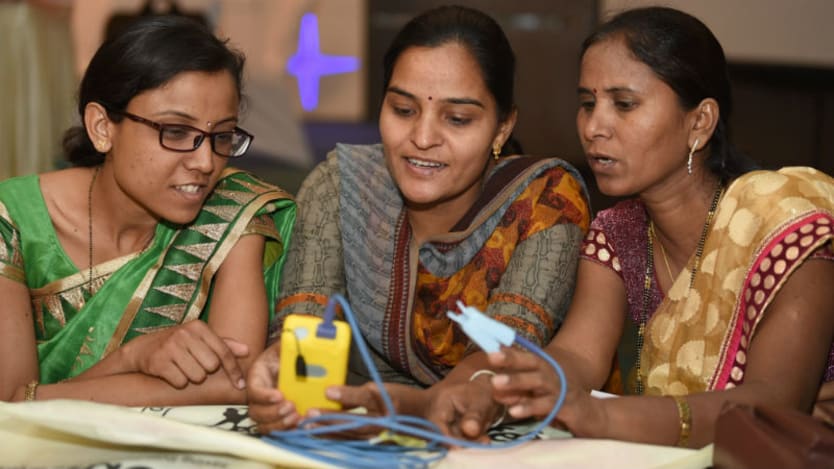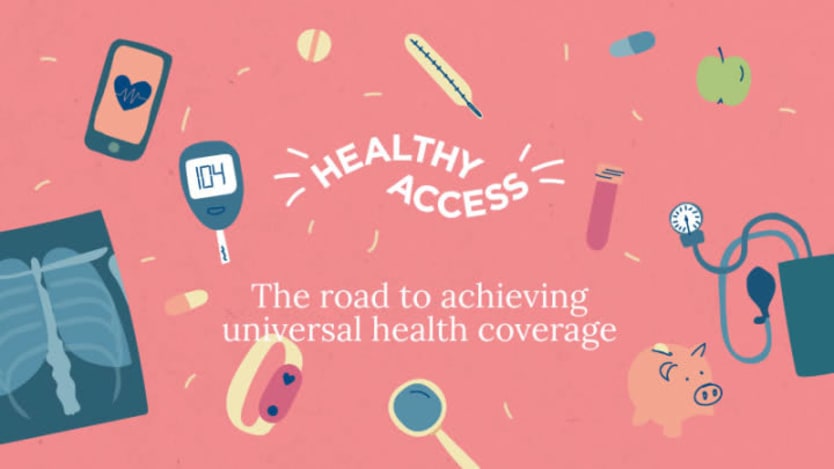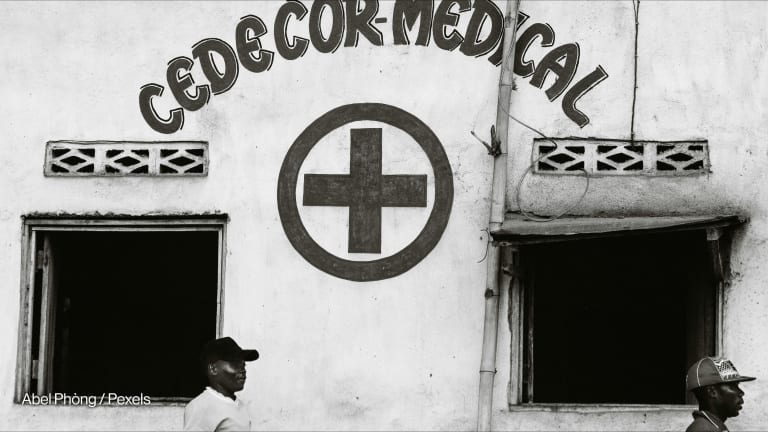
Almost 30 years ago, signatories to the Convention on the Rights of the Child agreed that every child possessed the right to a standard of living adequate for the child’s physical, mental, spiritual, moral, and social development. Realization of this right — realization, in fact, of all human rights — begins with fulfillment of the fundamental right to health. From the moment we are born — or even before — our health defines the trajectory of our lives.
The movement for universal health coverage must be first and foremost a movement for justice and equity for the marginalized and disempowered — particularly for patients living along the “last mile of health” whose lives have been shaped by lack of access to safe, affordable health care.
Around the globe, for example, 1 in 700 babies are born with cleft lip and/or cleft palate each year. In high-income countries, this condition is usually treated by a team of specialists soon after a child is born. In low- and middle-income countries, care for conditions such as cleft lip and palate is out of reach, geographically or financially, for millions of patients.
“The movement for universal health coverage must be first and foremost a movement for justice and equity for the marginalized and disempowered.”
—This is largely due to a lack of investment in strong health systems that provide access to health care and treatment for all citizens. Across most countries in the African continent, for example, funding for health services still lags far behind the 15% commitment made by the countries in Abuja in 2001, and progress has been uneven. Each year, 11 million people across the continent are pushed into poverty due to high out-of-pocket medical expenses. Millions live with preventable disability and death, and an incredible amount of potential — social, economic, and incalculable human potential — is lost.
This article is part of a series looking at the technology, practical solutions, and innovative financing tools driving improved access to quality care around the globe. Read more:
► How voluntary licensing agreements are transforming HIV care
► UK must not be 'browbeaten' by US on SRHR, say politicians
UHC2030, the multistakeholder platform leading the movement to promote collaborative work on health systems strengthening at the global and country levels, urges governments to close this gap, to invest more, invest better, to increase funding for UHC and, most critically, to direct that funding towards efficient, effective systems that support primary health care and UHC delivery.
However, while the obligation of UHC indeed lies with governments, civil society organizations are critical partners in achieving health for all. To do this by 2030, civil society must consider how we are providing care and the investments we are making in key drivers for lasting health change.
We propose three broad — but by no means exhaustive — recommendations for investing in sustainable health systems strengthening:
1. Utilize context-appropriate and need-responsive technology
Almost any conference on UHC features a panel on harnessing technology for health care delivery. Technology has incredible potential, but, as Dr. Tedros Adhanom Ghebreyesus, director-general of the World Health Organization, noted, “Ultimately, digital technologies are not ends in themselves; they are vital tools to promote health, keep the world safe, and serve the vulnerable.”
As with any intervention, technology must address needs identified by the community, and work in ways that are context-appropriate and do not impose more burdens than they alleviate. The most innovative technology in the world will not be effective if it is not aligned with the community it is intended to serve from the start — the infrastructure and challenges of the environment must be considered, and the technology must be widely accessible. For example providing low-maintenance and rechargeable technological solutions for health care contexts that do not have consistent power, such as the Lifebox product launched across Smile Train’s partner hospitals in 2011.
2. Invest in local providers to strengthen health systems
To effectively invest in systems strengthening and capacity-building, it’s important to empower local providers — including community and frontline health workers. For this, partnerships and grants that provide resources and skills training for health care providers are essential. By maintaining an on-going dialogue with partners, for example, Smile Train can respond to the needs and challenges of providers, while country managers serve as partner advocates.
Similarly, Amref Health Africa trains health workers in not only medical skills but in leadership, management, and governance, ensuring they are equipped with the skills necessary to navigate the challenges of their local health systems. These essential professionals are uniquely poised to bridge the gap between the community, the health system, and the government. They are acutely aware of the challenges of delivering care, the needs of the community, and how to build trust between patients, providers, and broader health systems.
One patient’s journey
Chekolech, whose name has been changed to preserve her anonymity, was 79 years old when she made the journey of over 500 km from Harar, Ethiopia, to seek treatment for her cleft lip and palate in Addis Ababa. The surgery was supported by Smile Train, an international charity that empowers local health care professionals to provide free cleft surgery and comprehensive cleft care for patients.
Chekolech’s life had been shadowed by the physical difficulties, social isolation, and stigma that too often go hand-in-hand with cleft lip and palate. After her surgery, she was pleased at the good results evident in her reflection — but as she gazed at her changed face in the mirror, she grew somber as she realized how different her life could have been had she had the surgery before. “I could have married,” she said quietly.
Unfortunately, her story is not unique.
With local leadership and community ownership, health initiatives succeed, and health systems grow stronger. Funders, CSOs, and governments alike must invest in policies and systems that have local ownership and community buy-in, as communities are at the heart of UHC implementation.
Talented, capable health workers cannot work without adequate resources, remuneration, or recognition, and under incredible pressure; female health workers in particular face these challenges. It is important to recall that behind these terms — “community health worker,’’ “local provider” — are humans with hopes and goals of their own. Funders, CSOs, and governments must formally recognize and invest in the health workforce that supports them.
3. Form partnerships to push for policies that put most vulnerable at heart of UHC
It is important that funding partners align and not allow silos to hamper progress. CSOs can not only shape governmental policies and ensure that these policies address the multifaceted barriers to care that exist throughout the world, but also work to ensure patients’ and providers’ lived experiences inform the implementation of these policies. When we, as members of civil society, are involved in UHC planning and implementation meetings, we must bring in those who have worked and lived along the last mile of health — literally where possible, and through data, case studies, and stories when not.
We must raise the narratives and voices of underrepresented and vulnerable populations — including women and children, refugees, and the most economically disadvantaged, who must be prioritized first within national health plans for universal health coverage. Civil society must advocate for their inclusion in health planning at the local and national level. September’s High-level Meeting on UHC will bring governments and stakeholders together in commitment for universal health coverage, and CSOs can facilitate citizen-led efforts to hold governments accountable for the investments they make for health.
Mark your calendar.
On Tuesday, Sept. 24, Devex is convening a day-long UHC Pavilion on the sidelines of the U.N. General Assembly in New York City, hosting a series of events focused on the critical topic of universal health coverage. Sign up for the livestream on UHC.
As civil society unites to call upon governments to make substantial commitments to funding and supporting UHC, we must also call upon ourselves as civil society to invest our joint resources, knowledge, and experience in ways that support health for all. We must be responsible, strategic partners and always recall that we are investing not only in the boats, but in the tide that will lift us all.
For a closer look at the innovative solutions designed to push for progress on universal health coverage around the globe, visit the Healthy Access series.










